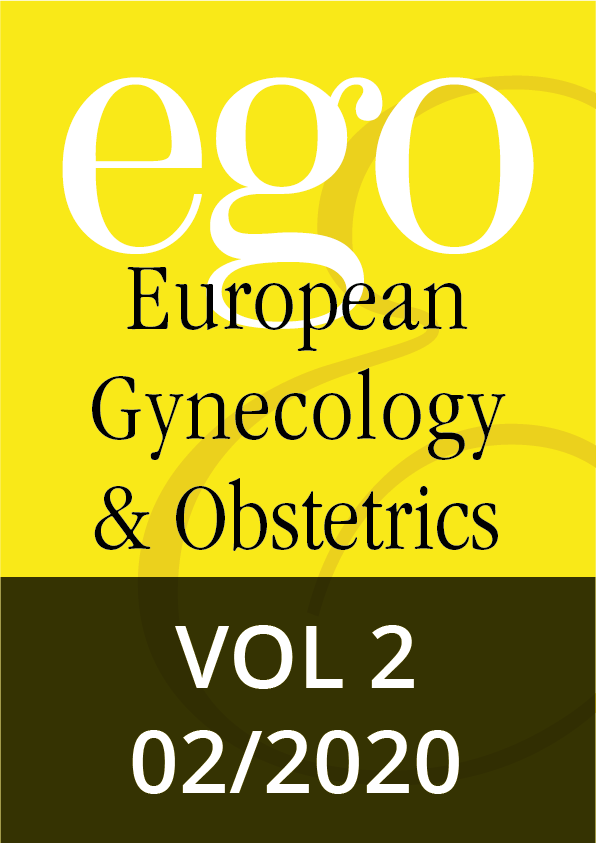Editorial, 03-04 | DOI: 10.53260/EGO.202011
Editorial, 071–072 | DOI: 10.53260/EGO.202021
Short reviews, 073–076 | DOI: 10.53260/EGO.202022
Short reviews, 077–081 | DOI: 10.53260/EGO.202023
Short reviews, 082–089 | DOI: 10.53260/EGO.202024
Short reviews, 090–093 | DOI: 10.53260/EGO.202025
Case reports, 094–097 | DOI: 10.53260/EGO.202026
Case reports, 098–100 | DOI: 10.53260/EGO.202027
Short reviews, 10-15 | DOI: 10.53260/EGO.202013
Case reports, 101–104 | DOI: 10.53260/EGO.202028
Original articles, 105–110 | DOI: 10.53260/EGO.202029
Original articles, 111–115 | DOI: 10.53260/EGO.2020210
Original articles, 116–122 | DOI: 10.53260/EGO.2020211
Original articles, 123–126 | DOI: 10.53260/EGO.2020212
Original articles, 127–131 | DOI: 10.53260/EGO.2020213
Consistency and internal structure of the Athens Insomnia Scale in colombian climacteric women
Abstract
Introduction: It is necessary to validate the consistency and internal structure of biomedical scales in different population groups.
Objective: This research was conducted to study the internal consistency and structure of the Athens Insomnia Scale (AIS) in climacteric women from the Colombian Caribbean.
Methodology: A methodological study was conducted including 1358 women aged 40 - 59 years (M=40, SD=5,8). 70.3% of them were mestizo, 18.2% Afro-Colombian and 11.6% Amerindian. 55.5% were postmenopausal. The AIS is an eight-item instrument based on the criteria for insomnia of the International Classification of Mental Disorders (World Health Organization, 1992). Its internal consistency was estimated with the coefficients of Cronbach’s alpha and Mc- Donald’s omega, and internal structure (dimensionality) was tested by confirmatory factor analysis and the calculation of goodness-of-fit indicators: root mean square error of approximation and 90%CI (RMSEA), comparative fit index (CFI), Tucker-Lewis index (TLI), and standardized mean square residual (SMRM). The following were considered adequate: RMSEA (<0.06); CFI (>0.90); TLI (>0.90) SMRM (<0.05).
Results: The AIS showed a Cronbach’s alpha and a McDonald’s omega of 0.93. The internal structure showed a dimension with an Eigen value of 5.43, which explained 67.9% of the total variance. The commonality between 0.538 and 0.733. The coefficients between 0.774 and 0.880. RMSEA=0.111 [90%CI: 0.101-0.121): CFI=0.96; TLI=0.94 and SMRM=0.03. These findings need to be corroborated in other Colombian and Latin American populations.
Conclusion: The ASI presents high internal consistency with a one-dimensional structure and acceptable values for three of four goodness-of-fit indices.
Keywords: Insomnia; Climacteric. Menopause; Reliability and validity; Validation studies.
Citation: Campo-Arias A.,Monterrosa-Castro �.,Herazo E.,Monterrosa-Blanco A., Consistency and internal structure of the Athens Insomnia Scale in colombian climacteric women, EGO European Gynecology and Obstetrics (2020); 2020/02:123–126 doi: 10.53260/EGO.2020212
Published: April 1, 2020
ISSUE 2020/02

Editorial, 03-04 | DOI: 10.53260/EGO.202011
Editorial, 071–072 | DOI: 10.53260/EGO.202021
Short reviews, 073–076 | DOI: 10.53260/EGO.202022
Short reviews, 077–081 | DOI: 10.53260/EGO.202023
Short reviews, 082–089 | DOI: 10.53260/EGO.202024
Short reviews, 090–093 | DOI: 10.53260/EGO.202025
Case reports, 094–097 | DOI: 10.53260/EGO.202026
Case reports, 098–100 | DOI: 10.53260/EGO.202027
Short reviews, 10-15 | DOI: 10.53260/EGO.202013
Case reports, 101–104 | DOI: 10.53260/EGO.202028
Original articles, 105–110 | DOI: 10.53260/EGO.202029
Original articles, 111–115 | DOI: 10.53260/EGO.2020210
Original articles, 116–122 | DOI: 10.53260/EGO.2020211
Original articles, 123–126 | DOI: 10.53260/EGO.2020212
Original articles, 127–131 | DOI: 10.53260/EGO.2020213
